Folks in Juneau working for food security!
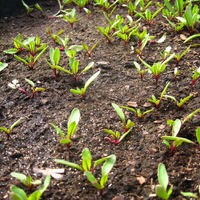
On the panhandle of Alaska, just barely above sea level, tucked between steeply sloping mountains and the Gastineau Channel, lies the city of Juneau. With the fishing industry still booming and tourism also contributing heavily to the local economy, one would hardly expect to see the serious social problems relating to homelessness and hunger that are rampant throughout the city. Winter temperatures are frequently below freezing and exposure to the cold poses a very real threat to citizens of Juneau who find themselves without homes. However, there is a beacon of hope for a community very much in need.
The Glory Hole is Juneau’s only emergency shelter and soup kitchen and has recently taken the initiative to start growing food wherever they can find the space! Each day The Glory Hole serves 150 of Juneau’s citizens breakfast, lunch and dinner, in addition to offering a food pantry-type service, distributing boxes of food and brown-bag lunches to individuals who cannot make it to the facility for various reasons. While The Glory Hole has established an excellent rapport in the community, allowing them to receive the majority of the food prepared and served from generous donations from local grocery stores and community members, food insecurity is a very real threat for the entire population of Juneau. Emily Rooney, garden coordinator at The Glory Hole, explains that nearly all of the food available in Juneau is either flown or shipped in, “Juneau is in a sensitive spot…if there was a transportation glitch for a week, we wouldn’t be able to feed ourselves.”
To combat this delicate situation, The Glory Hole decided to solve a long-standing problem with a future-minded solution. The shelter and soup kitchen facility, like many places in Juneau, was built on mine tailings. The building has a large roof, perfect for container gardening, and a backyard that is very steeply sloped with little or no vegetation to secure the soil from erosion. After years of watching their backyard erode and the roof go unused, Executive Director Mariya Lovishchuk saw the “necessity for fixing the land.” Terraced garden beds for the backyard and containers for gardening on the roof seemed like a natural solution.
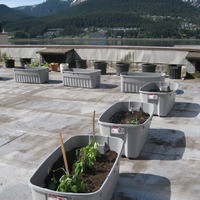 The going was slow. Because of Juneau’s climate, growing food is not exactly the easiest task. The soil stays damp and cold year-round and frost is often spotted well into May, making for a very short growing season. It became very obvious to those involved in the garden project that without the construction of a greenhouse also on the roof, they may never grow many of the familiar and necessary garden foods like beans, tomatoes or peppers. Fortunately, one of the patrons of The Glory Hole had just the skills they needed.
The going was slow. Because of Juneau’s climate, growing food is not exactly the easiest task. The soil stays damp and cold year-round and frost is often spotted well into May, making for a very short growing season. It became very obvious to those involved in the garden project that without the construction of a greenhouse also on the roof, they may never grow many of the familiar and necessary garden foods like beans, tomatoes or peppers. Fortunately, one of the patrons of The Glory Hole had just the skills they needed.
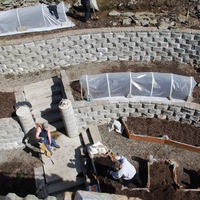
Tony Lafso is a long-time temporary resident of Juneau. “He loves to travel and during the past 18 years he has spent time traveling between the lower 48 [states] and Alaska, mostly as a Peace Activist joining various war protests and peace movements,” says Emily. As a result of his moving around and a genetic heart defect, which has limited his ability to be a steady member of the workforce, Tony does not have a permanent residence in Juneau and relies primarily on The Glory Hole for food and shelter during his time in Juneau. However, when given the opportunity to use his talents to lift up his community, Tony stepped up to the challenge. Emily explains:
Tony has been integral in the Garden Project here at The Glory Hole. He was the lead architect and carpenter on our Greenhouse Project, working with and directing other patrons throughout the installation process. Tony has never built a greenhouse before, but with a little time spent researching and his strong background in carpentry, he succeeded in building a beautiful and strong structure.
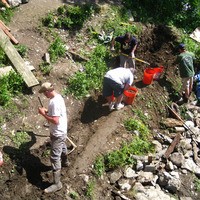 His role as a leader at The Glory Hole doesn’t stop there, either. With the Greenhouse Project completed, Tony has taken it upon himself to do community outreach on behalf of the shelter, soup kitchen and garden, raising awareness and money for The Glory Hole and the homeless condition. His plans include a mural with photos, statistics, and quotations targeted at tourists from the stead stream of cruise ships that pass through Juneau. His awareness project also includes an attempt to invite tourists to garden and work alongside the homeless community members. “Tony believes that many people will connect to this [project] as gardeners themselves and also as people who know someone in a homeless or unemployed condition,” Ms. Rooney says.
His role as a leader at The Glory Hole doesn’t stop there, either. With the Greenhouse Project completed, Tony has taken it upon himself to do community outreach on behalf of the shelter, soup kitchen and garden, raising awareness and money for The Glory Hole and the homeless condition. His plans include a mural with photos, statistics, and quotations targeted at tourists from the stead stream of cruise ships that pass through Juneau. His awareness project also includes an attempt to invite tourists to garden and work alongside the homeless community members. “Tony believes that many people will connect to this [project] as gardeners themselves and also as people who know someone in a homeless or unemployed condition,” Ms. Rooney says.
It is clear how important leadership and initiative like that of Mr. Lofaso can be in both the establishment and improvement of food security projects such as the garden at The Glory Hole. Without the investment of time and resources, coupled with an openness to participate in conversations about how and where we get our daily bread, justice and equitable access to healthy and local food will remain out of reach.
Thank you to Tony Lofaso and all the great folks working at The Glory Hole for inspiring the Food Fighter in us all!
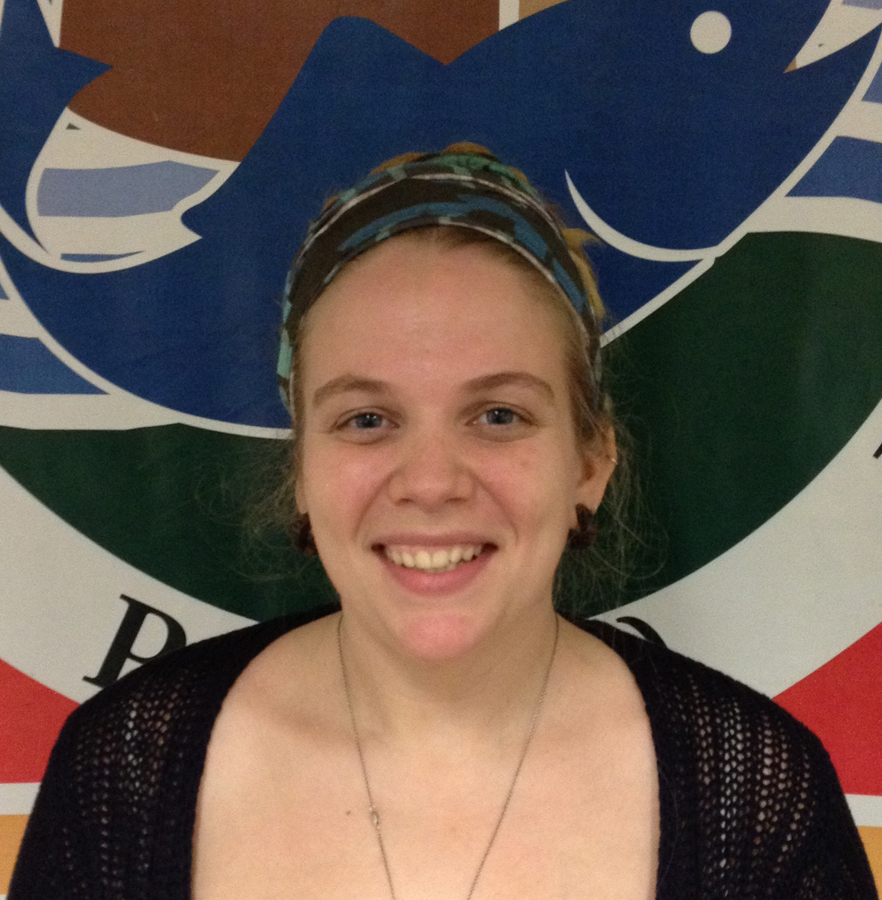 For more information about the garden at The Glory Hole, visit http://www.feedjuneau.org, or for helpful ideas on how to get your own Food Justice project off the ground please email or call our National Food Security Coordinator: arianna.king@pcusa.org or (502) 569-5818. Happy Growing!
For more information about the garden at The Glory Hole, visit http://www.feedjuneau.org, or for helpful ideas on how to get your own Food Justice project off the ground please email or call our National Food Security Coordinator: arianna.king@pcusa.org or (502) 569-5818. Happy Growing!